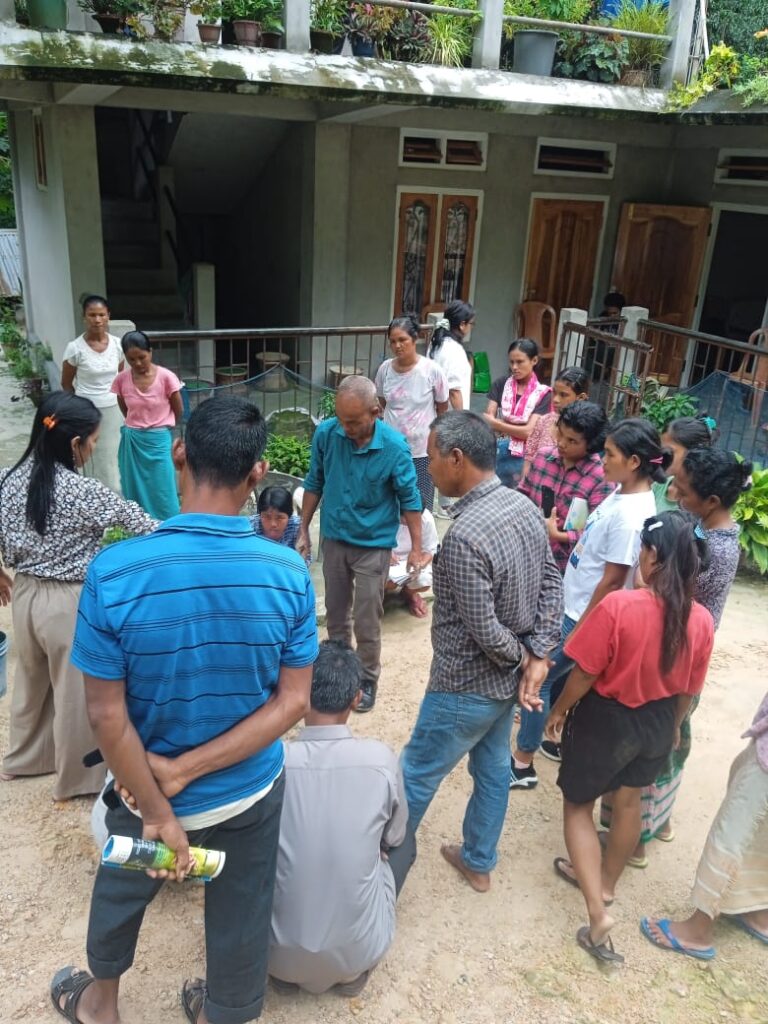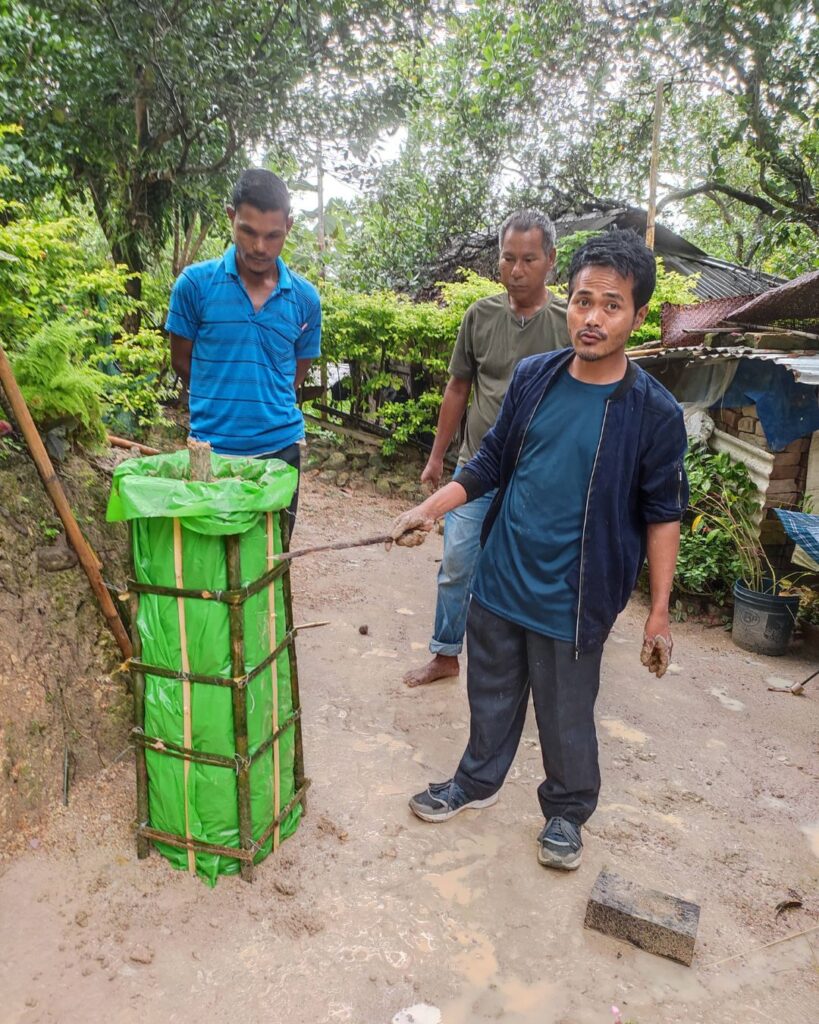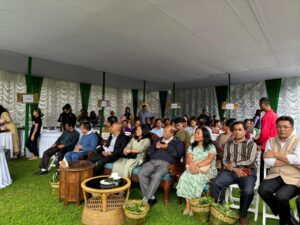A multi-faceted technical training was facilitated by members of the NESFAS team at Smok Songgital in South West Garo Hills on the 13th of September, 2022. Smok Songgital is one of the newest villages in the Garo Hills region that NESFAS has taken under its wing and is part of the ongoing project, “Empowering Indigenous Communities through Agroecology Learning Circles (ALCs) for resilient, integrated and innovative natural resource management”, which is supported by MBMA and funded by the World Bank. ALC farmers and Community Facilitators from Daribokgre in East Garo Hills, Darechikgre is West Garo Hills, Chiringpara, Baladinggre, Rongchadenggre, Kokatolgre and Masudigre in South West Garo Hills participated in this programme.
The training covered various topics, namely- grafting techniques such as budding, air-layering, and root cutting; Vertical gardening and Berkeley compost making. Two members of the NESFAS team-Bah Shaiphar Dohling, Community Consultant, and Bah Armsterwell Kharbuki, Technical Consultant, took the lead in demonstrating the sessions theoretically and practically.

The first part of the training was facilitated by Bah Armsterwell who covered the topics of Budding, Air-Layering, and Root-cutting, explaining to the community the methods involved, while also stating the seasons in which they are best done, and the varieties of fruit trees that can be propagated using these grafting techniques. With a detailed step by step explanation, he stated that air-layering is done best during the growing season, while root-cutting is to be done during the period of dormancy, starting from the month of December upto late February.
“Root-cutting is best for trees which are difficult to propagate through seeds or stem cuttings. This method has a better rate of success. Also, by using methods such as root-cutting, air-layering and budding, we can hasten the fruit-bearing process. When propagated from seeds, fruit trees normally take 10 years or beyond to bear fruits, but using these methods will ensure healthy fruiting within 4-5 years,” Bah Armsterwell stated.
The second part of the training, facilitated by Bah Shaiphar Dohling, covered Vertical Gardening. This technique of gardening is effective in overcoming space constraints for enthusiastic gardeners, and is gaining popularity in cities where space is a common problem. But for areas like Smok Songgital, the concept of vertical gardening comes as a blessing for farmers whose kitchen gardens had been washed away earlier by flash floods and heavy rainfall. As the crops are planted vertically as opposed to the traditional method of horizontal gardening, there is no problem of soil erosion, and also cuts down the growth of unwanted invasive weeds.

The last part of the training session was facilitated by both the trainers wherein a demonstration on Berkeley compost making was shown. This method uses dry biomass, fresh biomass and fresh farmyard manure in three alternating layers stacked one after another. After layering, it is to be sealed air-tight and kept for four days, then it is to be opened and mixed and kept airtight for another eighteen days, after which it is ready for use. As this compost can be made by the farmers, it is easy and convenient as ingredients used can be sourced by themselves.
The farmers expressed their gratitude to the trainers for facilitating fruitful training and each of them gave their word that they would go back home and make use of their new-found learnings. While some of the farmers collectively agreed that they were familiar with the concept of grafting and had been practicing it for years and years now, they stated the technical training gave them new insights and pointed out the shortcomings in the methods adopted by them earlier.
“I had tried air-layering on my own earlier but failed to produce successful results as I did not follow the correct method. Perhaps the branch I tied for propagation was not airtight enough. I will use the method taught to us today and try propagating again,” Jolina A Sangma, community facilitator from Darechikgre was quoted as saying.
Another farmer, Sengchilla Ch Marak, Community Facilitator of Smok Songgital, also shared her thoughts, saying, “We will make use of today’s learnings in our experiments, and make compost on our own, as we have lack of space and the problem of less fertility in the soil. We will now be able to combat our problems in farming hopefully.”
As farming forms the backbone of our economy, with farming communities in rural areas being the major stakeholders, such training serves as a boon to address and tackle issues that our indigenous communities face. A timely intervention and necessary step taken could well be the answer to sustainability of indigenous farming practices, and for the protection of our agrobiodiversity.





